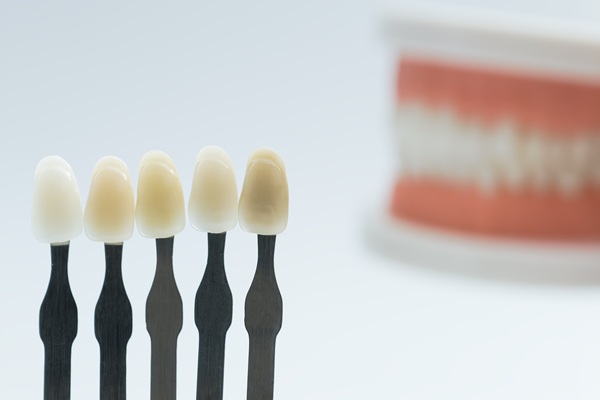How a Professional Deep Teeth Cleaning Can Save Your Oral Health

A healthy and clean mouth requires more than brushing and flossing daily. Professional deep teeth cleaning can help prevent severe oral health issues, particularly beneficial for those with moderate to severe gum disease or plaque buildup. Deep teeth cleanings address issues that regular cleanings may miss or not be able to fully address, promoting healthier teeth and gums.
The effects of ignoring plaque and tartar buildup
Neglecting plaque and tartar buildup can have significant consequences for oral health. When left untreated, the accumulation of bacteria along the gum line can lead to gingivitis, the earliest stage of periodontal (gum) disease. Red, swollen gums and bleeding while brushing are often the first signs of this condition.
If gingivitis progresses, it can develop into periodontitis, a severe form of gum disease that affects the tissues and bone supporting the teeth. Periodontitis can result in gum recession, loose teeth, and tooth loss. Additionally, research has linked advanced gum disease to systemic health problems, including heart disease, diabetes, and respiratory infections.
Fortunately, deep teeth cleaning addresses the root causes of gum disease. While it does not cure severe periodontal disease, it can prevent it from progressing and reduce the risk of long-term oral health complications. By removing harmful bacteria and promoting gum healing, this procedure can save teeth that the patient may have otherwise lost to advanced periodontal disease.
Understanding deep teeth cleaning
A deep teeth cleaning, also known as scaling and root planing, is a dental procedure designed to remove plaque and tartar that accumulate below the gum line. Unlike routine cleanings, which focus on the surfaces of a person's teeth and gums, this treatment reaches the pockets between the teeth and gums where harmful, accumulated bacteria thrive. These pockets form when plaque buildup leads to inflammation and gum detachment, commonly associated with severe periodontal disease.
Benefits of deep teeth cleaning for oral health
Deep cleaning is essential for preventing tooth loss by effectively removing plaque and tartar that contribute to the progression of gum disease. This procedure reduces gum inflammation and allows the gums to heal and reattach to the patient's teeth, promoting healthier gums overall. Additionally, deep cleaning helps to combat chronic bad breath, leading to a cleaner and fresher-smelling mouth.
Furthermore, improved gum health can reduce the risk of developing or worsening systemic diseases such as heart disease and diabetes, which research has linked to poor oral hygiene. After deep cleaning, patients are better equipped to maintain better oral hygiene, contributing to their overall health and well-being.
Ideal candidates for professional deep teeth cleaning
A general dentist will typically recommend a deep cleaning for patients showing signs of gum disease. These signs may include:
- Bleeding, swollen, or tender gums
- Deep pockets around the teeth
- Persistent bad breath or a foul taste in the mouth
- Pus in the gums
- Receding gums, which make teeth appear longer
- Loose teeth or increased spaces between teeth
- Increased tooth or gum sensitivity
Patients who have not gone to a regular dental cleaning for a long time or who have poor oral hygiene habits may need to undergo this procedure.
A dental examination will often include probing the gums to measure the depth of the pockets between the teeth and gums. If the pockets exceed 4 millimeters, the patient may need a deep cleaning. The dentist may also use imaging tests like dental X-rays to identify any existing bone loss, which also can indicate the need for treatment.
The deep teeth cleaning process: what to expect
During a deep cleaning, a general dentist uses specialized tools to carefully clean below the patient's gum line. The cleaning process involves two primary steps:
- Scaling: The dentist removes plaque and tartar are removed from the surfaces of teeth and from deep within the gum pockets.
- Root planing: The dentist smooths the roots of the teeth to prevent bacteria from sticking to the surfaces in the future. Root planing can also help the gums reattach to the patient's teeth.
This thorough cleaning process is essential for individuals with signs of gum disease, including swollen gums, persistent bad breath, and gum recession.
Follow-up care and cleanings
While deep cleaning is an effective treatment, it is only one component of comprehensive dental care. Routine dental checkups and cleanings are essential for maintaining oral health and preventing the need for more invasive treatments. They can also prevent the need for future deep cleanings. Patients who undergo deep teeth cleaning should continue to visit their dentist for regular follow-ups to ensure their gums remain healthy and infection-free.
A deep teeth cleaning can transform your oral health
A deep teeth cleaning can prevent tooth loss, improve gum health, and contribute to your long-term oral health. Miami Implant & Family Dentists offers deep teeth cleanings in the Miami area. Call our office to learn more or to schedule an appointment.
Request an appointment here: https://implantfamilydentist.com or call Miami Implant & Family Dentists at (305) 230-4040 for an appointment in our Miami office.
Check out what others are saying about our services on Yelp: Deep Teeth Cleaning in Miami, FL.
Recent Posts
Invisalign® is a modern teeth-straightening treatment that changes dental alignment by moving teeth with clear aligners. The process of getting this system is like that of getting traditional braces. Each step makes sure that you achieve a straighter, healthier smile. Here are the different parts of your Invisalign journey.This is the first step of getting…
Dental bonding is a versatile and effective cosmetic dental procedure that addresses a range of aesthetic and functional concerns. By using a tooth-colored resin material, dental bonding can enhance the appearance of teeth, repair minor damage, and restore confidence in a smile. Identifying the signs that indicate a patient may benefit from dental bonding helps…
Invisalign straightens teeth using clear, custom-made aligners, offering a comfortable and discreet alternative to traditional braces. The aligners are also removable, making it easier to maintain oral health throughout the treatment process. Here is what you should know about Invisalign and oral hygiene to ensure a healthy and successful journey towards a straighter smile.Unlike traditional…
Invisalign® is an orthodontic system with the primary focus of aligning your teeth. It is often seen as a discreet alternative to braces, another powerful alignment tool. Take a closer look at this dynamic system and how it can help you.Invisalign is a system that uses a series of clear aligner trays. These trays are…


